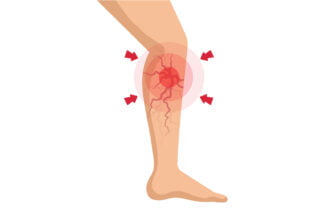Driving to work, hanging out with friends, taking trips around town; all these can be fun things to do. But you know what isn’t fun? Spending hours in the driver’s seat.
Ask anyone who drives, and I bet we can all agree driving for long hours fatigues the body. But besides those instant aches we feel, do you know there are other health impacts associated, too? I doubt you do. Anyways, that’s what you’re about to find out in this article. So, let’s get started.
Health impacts of driving for too long
- Blood sugar level rises
According to studies published in the American Journal of Preventive Medicine, driving more than 10 miles(one-way) can cause one’s blood sugar levels to rise.
You might wonder what the connection between blood sugar and driving is. Well, the connection comes from the way we sit while we drive. When we drive, we put the body in an unconventional posture, exerting too much pressure on the spine, preventing the central nervous system from communicating properly with the rest of the body.
Unfortunately, an increase in blood sugar levels is a recipe for diabetes and pre-diabetes.
- Anxiety levels increase
It is common knowledge that people who commute very often every day experience higher levels of stress and anxiety than people who don’t commute at all.
If you’re guilty of driving for too long in one go, then you should know that you’re at risk of stress and anxiety.
While it may seem like there isn’t anything you can do to cut short your daily commute, try to find ways to achieve your routine without necessarily spending too long on the road.
I, for one, hate driving too much. So, what I do is that I always search for the nearest places/spots for whatever I need to do. For example, if I need to find the best hair salons in an unfamiliar environment, I’d simply use a local search tool to find one within a trekkable distance rather than get in the car and start driving around town.
- Cholesterol level rises
I know the last thing anybody wants to hear is anything that has to do with cholesterol. But, here’s the shocker. Those 10-mile one-way trips you love to embark on are actually the recipe for increased cholesterol levels. And as you may well know, increased cholesterol simply means increased chances of catching heart-related diseases.
The connection between cholesterol and driving comes from the bodily stress and strain that accompanies long-distance trips.
- Blood pressure rises
Driving for too long, especially during rush hours, can cause a spike in your blood pressure.
How? Someone may ask.
Well, the fact you’re trying to beat the traffic, get to your destination early, and possibly achieve these over a long-distance trip can cause your heart rate to jack up at intervals, leading to higher blood pump and pressure.
Obviously, I don’t think you need reminding all the health threats associated with high blood pressure. We talking heart failure, blood vessel damage, vision loss, stroke, kidney disease; should I continue?
- Fatigue
Sitting behind the wheels for long hours chasing appointments, making deliveries, hooking up with friends, or embarking on long-distance travels are all factors contributing to being fatigued at the wheel. Unfortunately, fatigue is one thing you don’t want to creep in because, according to estimates, over 20% of fatal crashes are caused by fatigue.
I, personally, usually get plenty of rest before driving on a long trip. Say I start my trip, and along the line, feelings of fatigue creep in on me, I stop. Pullover and take a walk, get an energy drink, or even a breath of fresh air alone does the refreshing magic.
- Prolonged exposure to pollution
Air quality is another risk involved in long-distance driving. When you sit inside the car, you think you are safe from the external pollution. Well, the fact is a little bit petrifying.
The air inside the vehicle can be 10x worse than the air outside, especially when one is caught in a traffic jam. The level of pollution inside is often worse because cars take in emission from vehicles around and circulate it inside the vehicle.
According to Environmental Protection Agency (EPA), the average adult breathes an estimated 3,000 gallons of air daily. You tend to inhale hundreds of gallons of pollutant-choked air when you commute for about two hours a day. And these can worsen emphysema, asthma, and other lung-related diseases one may have.
The quality of the air we breathe is essential because many people now put on protective facemasks for longer periods than in previous years.
Imagine wearing a nose mask inside a vehicle for as long as five hours without pulling over to get a breath of fresh air, and you think you’re safe. Well, sorry to break it to you, you aren’t.
- Backaches
Whether you are a passenger or a driver, we cannot deny the negative consequences of spending hours slouched over in a car seat. Your posture and back suffer it. Commuters are more likely to report aches and neck pains.
- Reduced cardiovascular fitness
We can all agree that driving involves less physical activity, right? Now imagine doing this for a long period – daily, weekly. People who drive for too long have lower levels of physical activity and cardiovascular fitness. Maintaining a healthy blood flow and weight is vital for heart health. Sitting for long periods lowers your cardiovascular fitness and puts you at risk of heart-related diseases and even blood clots too.
Conclusion
The longer the hours spent driving, the greater the risk of being in an accident. This can be due to multiple factors such as distracted driving, speeding, weather conditions, and other drivers.
Whether it’s part of your daily commute or your job, driving for too long can have long-term and short-term effects on your health. Driving fatigue, lack of physical activity, air pollution, etc., can lead to a shortage of oxygen levels in the body, resulting in headaches, fatigue, and dizziness.









